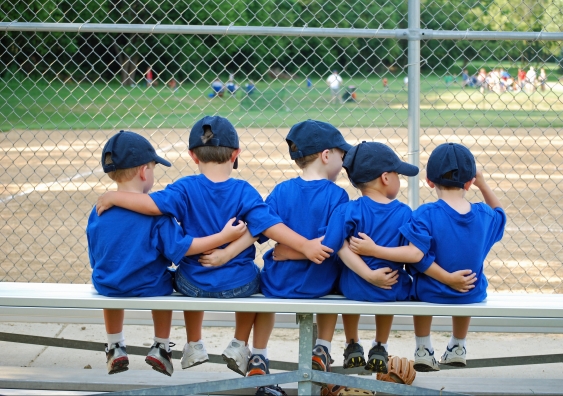From the sandpit to the playground: lessons beyond the syllabus
Learning life lessons and how the world works is more important to a child's growth and development than a sole focus on academic achievement, writes Louis Wang.
Learning life lessons and how the world works is more important to a child's growth and development than a sole focus on academic achievement, writes Louis Wang.

OPINION: Our daughter starts kindergarten on Monday. She is very excited, but she also understands that things will be different – no longer one of the bigger fish in her preschool, she will have to learn to find her place in a new environment, starting as one of the smallest, if not youngest, fish in a much larger pond.
It has been exactly 30 years since my wife and I started school. Although a lot of things have changed, many of the life lessons children need to learn during their years at school remain the same.
Our daughter will miss the little utopia that has been her childcare centre as well as its enormous communal sandpit, a place where children of all ages played together while learning to share, simple metaphorical lessons with wide-ranging applicability in later life. She does not appreciate this yet, but the countless hours she has spent in the sandpit will be probably just as important to her future as the syllabus of any subject she studies.
As she goes through school, we will help her realise that there is a much deeper lesson to be found between the lines of ink in each class syllabus. Talk to any doctor or anyone in a profession that requires many years of study, and they will tell you that there is much more to life than reading a book. Being studious and getting good grades count for very little in the great lottery of life. Rather, where we end up and our own future happiness are determined by a multitude of other factors, such as being open to new experiences, exploring one's interests, learning and honing new skills, being able to communicate our ideas, and making informed choices. These important life skills are indirect outcomes of every school curriculum, but assessing these in real-time is almost impossible. For most of us, it is only through retrospective self-reflection that we can gauge for ourselves how well we truly fared all those years ago.
Despite the fact that both of us were once model students who finished high school with a perfect UAI of 100, products of an egalitarian state school system where every child had an opportunity to excel, my wife and I will not encourage our daughter to be a bookworm.
Therefore, despite the fact that both of us were once model students who finished high school with a perfect UAI of 100, products of an egalitarian state school system where every child had an opportunity to excel, my wife and I will not encourage our daughter to be a bookworm. Instead, we care more about how she makes friends. We will encourage our daughter to play sport, just as we did, not only because healthy lifestyle habits should be promoted and reinforced at a young age, but also so that she understands the true meaning of being part of a team – that everyone, irrespective of skill level, is valued and has an important role to play. But most important of all, so that she can learn to lose. This is because in the wider world, and unlike schoolwork, effort does not necessarily result in success, and it is extremely important to learn how to deal with disappointment when things do not go our way.
We will emphasise to her that the real world is filled with people of all different walks of life, and that being able to relate to them is crucial to her own future. Like every other schoolkid, she will no doubt spend countless hours doing exercises in numeracy and literacy. But for us, it will be more important that she understands how people use numbers in everyday life, or why the characters in the book felt the way they did or chose to make certain decisions, and what we can all learn from their example. This way, she will learn the important concept of obtaining a balanced perspective, appreciating another person's viewpoint so that she can better formulate and communicate her own.
It will be a proud moment for all of us first-time school parents when we watch our children take their first steps into the classroom. Especially at a time when fear, ignorance and prejudice remain a constant threat to our way of living, perhaps these living embodiments of our own future will help shape our world into a cosmopolitan place where inclusivity is promoted, every life matters and even the smallest person has a voice.
At school, our children will work from the syllabus; at home, we can also help them understand not only what they need to know but also the sort of person they should strive to be. We can role-model compassion, integrity, resilience in the face of adversity, tolerance and acceptance of other people's differences, respect for one another and the environment, the importance of hard work, and the satisfaction of doing a job well. And as our children cross the threshold into school, not only do they carry our hopes; they also remind us of our pledge. With everything that is going on in this world, theirs is the generation that may one day help save us all. We just need to show them how.
This article was first published in the Sydney Morning Herald with the headline 'Why I don't want my daughter to be a bookworm'. Read the article here.
Dr Louis Wang is an Australian cardiologist and lecturer at UNSW Medicine’s St Vincent's Clinical School.